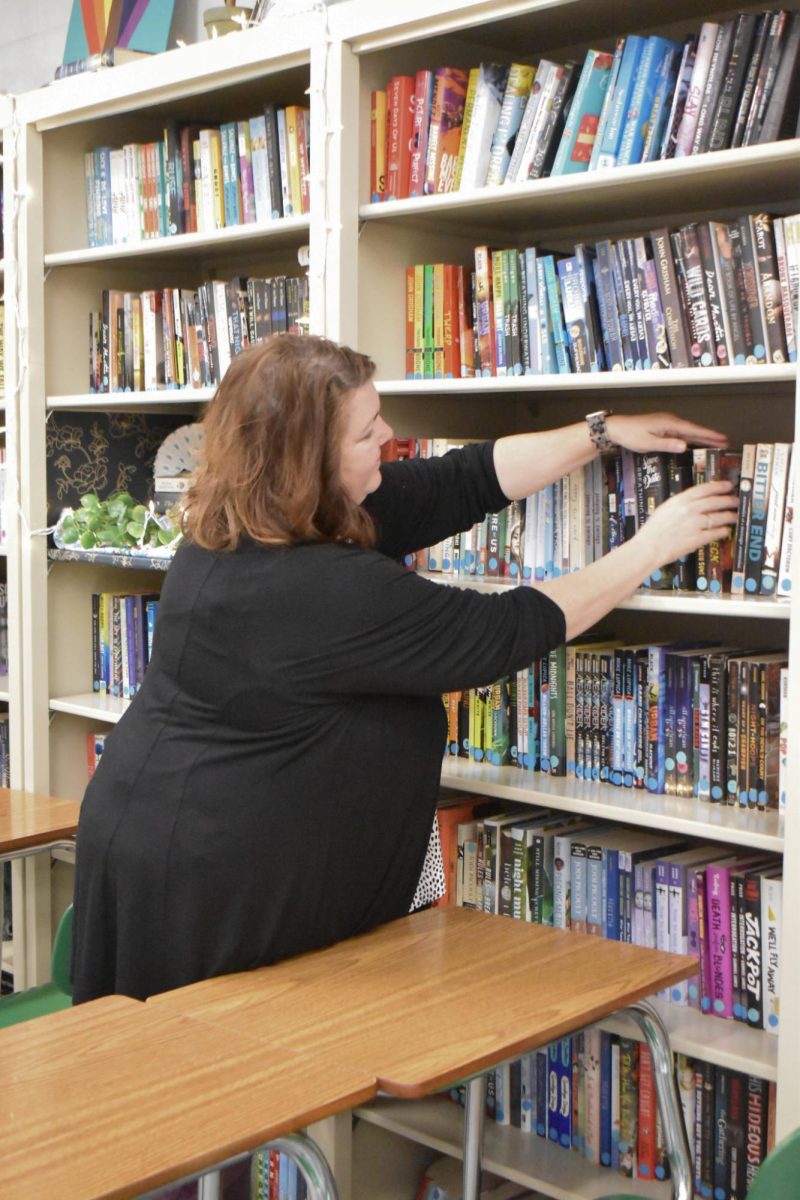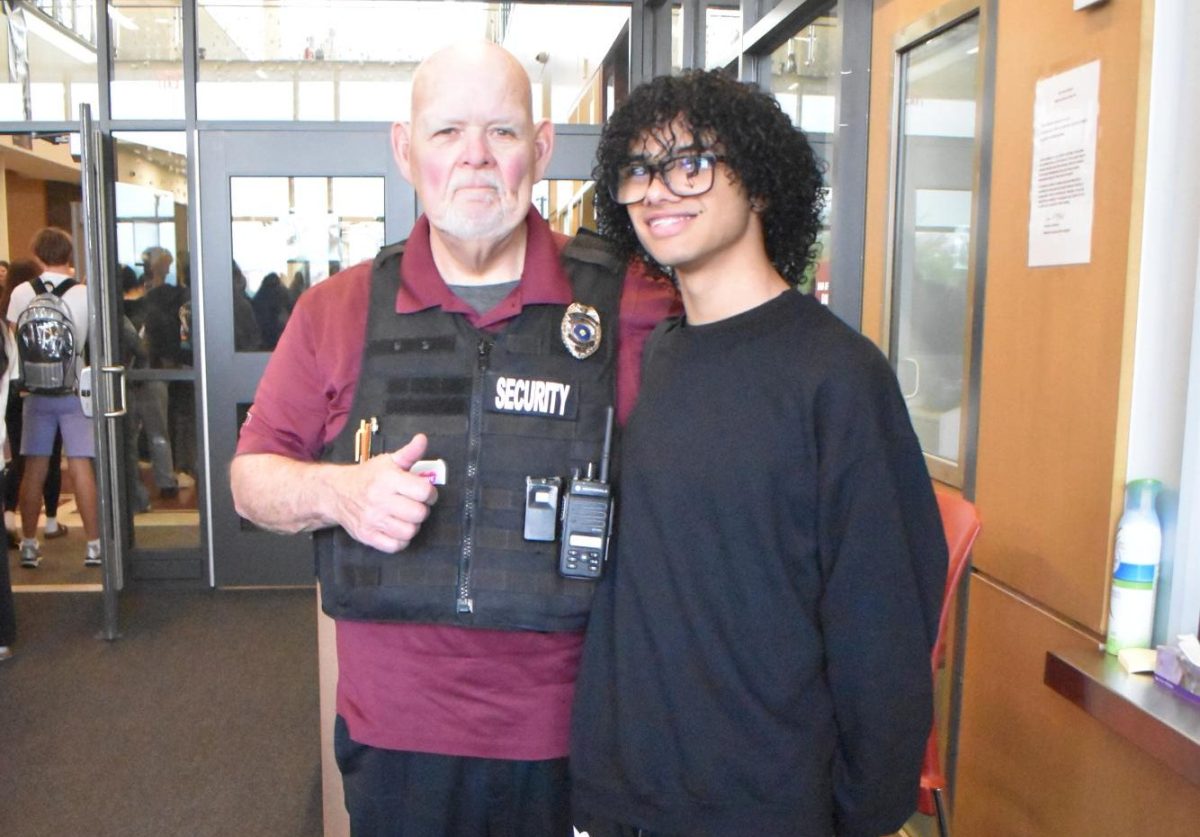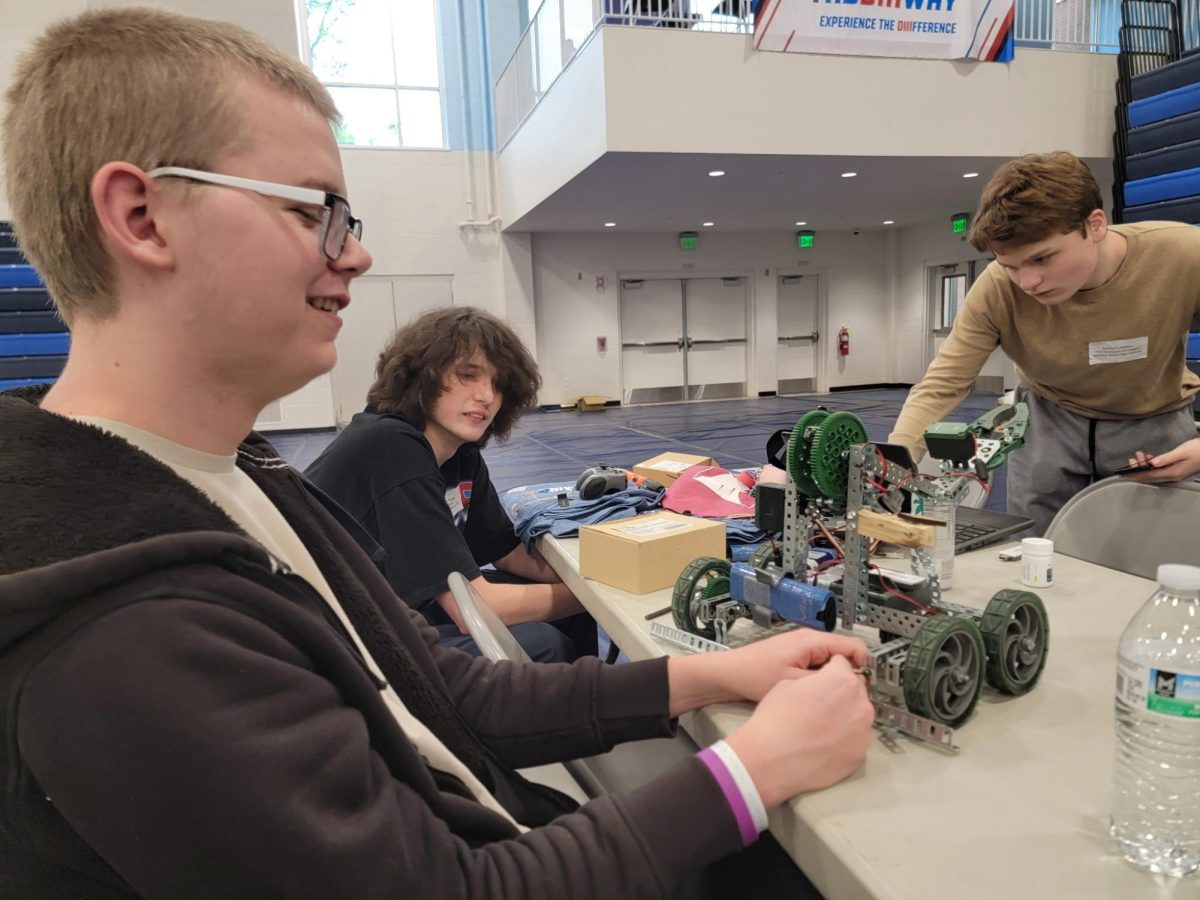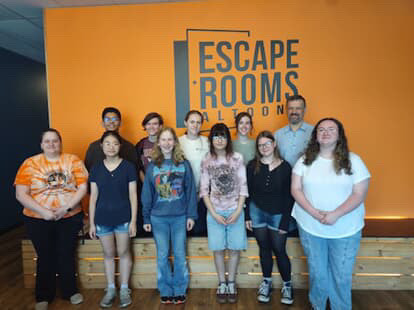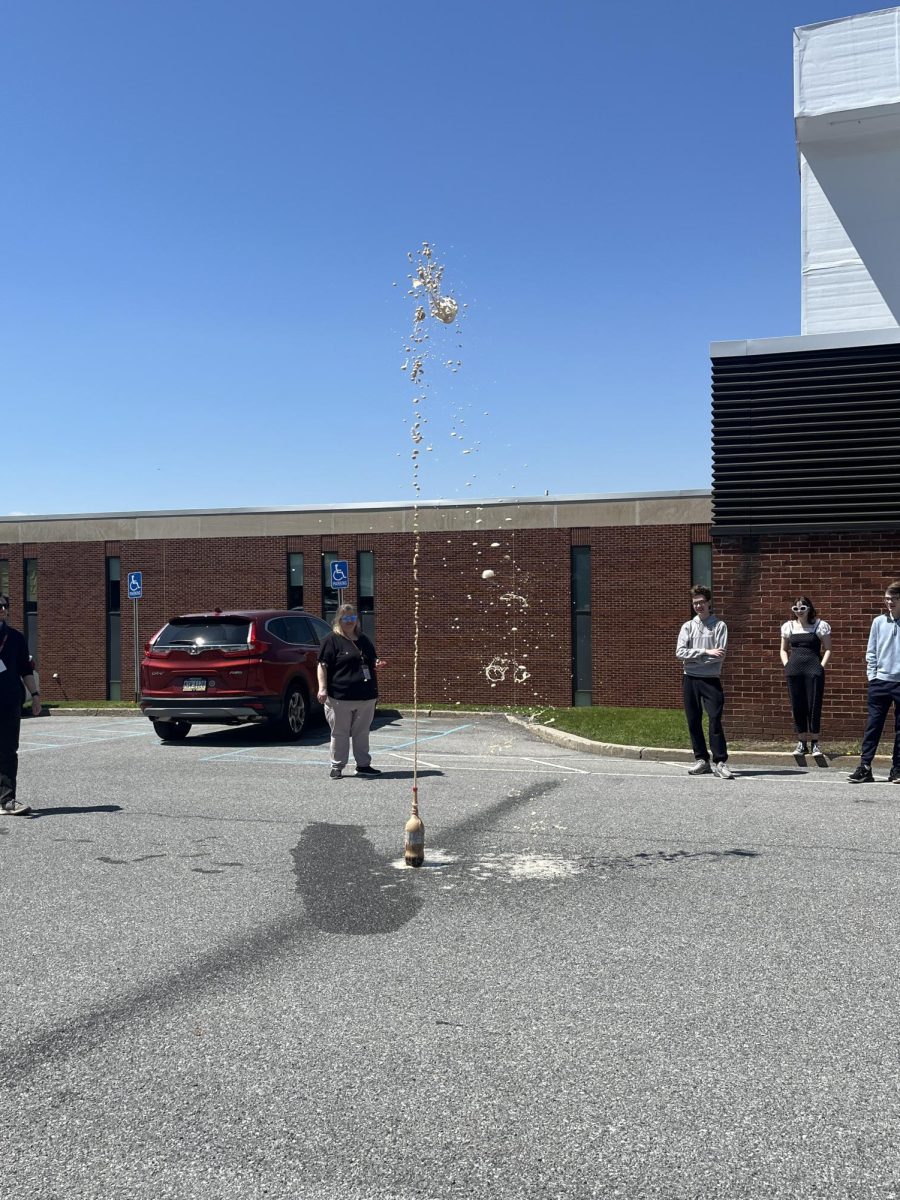AAHS Alumnus Louis Schmitt re-elected to the Pennsylvania House of Representatives
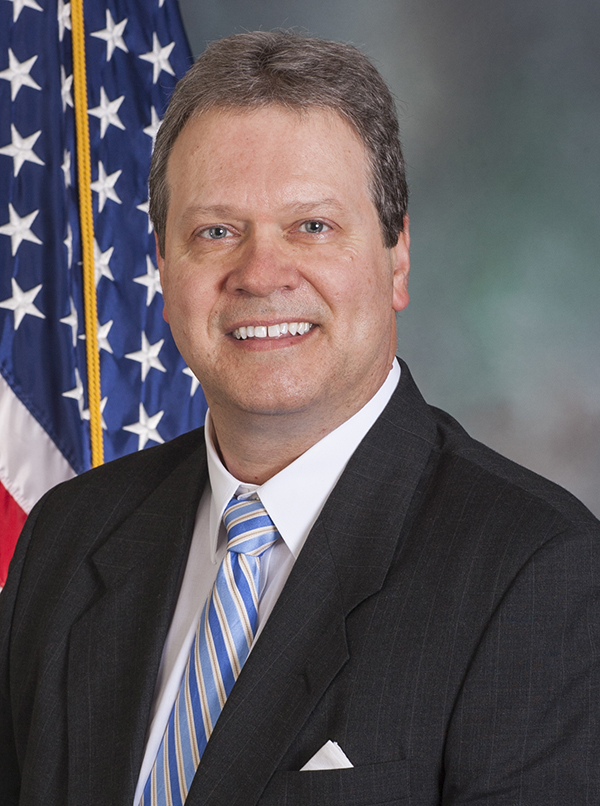
Rep. Louis Schmitt, Jr. has been a member of the Pennsylvania House of Representatives since 2019. Schmitt graduated from AAHS in 1980, and, four years later, he earned his degree from Saint Francis University. He then went on to study law at the University of New Hampshire and became an attorney. In 2019, Schmitt decided to enter politics. He ran for the Pennsylvania House of Representatives as a Republican and has been a member of the House ever since.
Q: Why did you decide to run for the Pennsylvania House of Representatives?
A: “I ran for the Pennsylvania House for the first time in 2018, and I think one of the main reasons that I decided to do it was that I really thought I could do a good job as the state representative for the 79th legislative district. I wouldn’t run for the job if I didn’t think I was the best person for the job, and I really thought I was the best person for the job when I ran. And I thought I would be a good state representative. I thought I would represent us well in Harrisburg. I had been an attorney for 31 years, so I had spent my entire adult working life representing other people. So I already was representing others. I just wasn’t representing 64,000 others until I ran for the 79th legislative district. But I thought, I really felt and believed that I was the best person for the job, and that was why I ran for it.”
Q: What do you, your party and your platform stand for?
A: “I’m a Republican. I think the Republican Party stands for self-determination. I think the Republican Party stands for the proposition that people ought to be able to do what they want with their lives. They ought to be able to make the decisions that they believe benefits themselves the most, so long as their decisions and their actions don’t interfere with others. And so I think self determination is really the main aspect of our Republican Party. The main thing that we strive for is really to let people make up their own minds and live their own lives in their own way, so long as it doesn’t interfere with others.”
Q: What do you stand for, in this position?
A: “I’ve been doing this for six years, so I’ve got a good bit of experience, and somebody who’s willing to work hard, because this job really is what you make of it. The harder you work, the better you’ll do. I am dedicated to serving the people of the 79th legislative district. I’m an Altoona guy, and representing them is really one of the great privileges of my life. I work very, very hard at it, and I work very effectively at it. I’m a good advocate for us, and that’s really what I intend to do and continue to do as the state representative, and that’s really always been my goal, to be the most effective representative, the most effective advocate for Altoona and representative that I can possibly be. I devote my energies to this job. I give everything I have to this job. It’s very important to me that I do a good job. I think all those things play into me being an effective and productive representative for us all.”
Q: Why should 18-year-old high school students support you?
A: “I think if an 18 year old high school student is interested in self determination, is interested in making their own decisions for themselves and is interested in controlling their lives without having the government or others tell them what to do. I think that those youths, those kids, those young adults, should very, very much support the Republican Party and very much support me, because that’s really what I am, that’s really what I stand for. I want to empower everyone whether it’s men or women, young ladies, young men, it doesn’t matter. I want everybody to live and choose the life that they really want for themselves, and to not have government interference and not have other people interfering in their lives again, so long as they don’t interfere in the lives of others. I want young people to be successful. I want them to reach their potential, and I want to help them do that. I want them to know that, and I think that’s the reason that young people should be supportive of me.”
Q: I want to pivot into certain issues that are important nationally right now but also locally. What is your stance on abortion?
A: “I am pro-life. I’m very pro-life. I’m a Roman Catholic. My religion has taught me since as far back as I can remember, that life begins at conception. I believe that life begins at conception. So I’m very, very pro-life. That issue for me is an issue of conscience, and my conscience tells me that life begins at conception. And so that’s why I’m pro-life.”
Q: Concerning taxes, could you expand on the measures that you took in the last few years, and what you’re looking to do in the future?
A: “I always believe that increasing taxes should be a last resort. Obviously, if there’s some kind of an emergency, we have to increase taxes because we need that revenue. We have to do that. I really think that the best thing to do is to ensure that the government is working as efficiently and effectively as possible, given the constraints of the present taxation scheme that we work under. I’m always very reluctant to raise people’s taxes. I’m a taxpayer too. I don’t want my own taxes to go up. I do think that if people believe that there’s going to be a tax increase and that the money will be used responsibly and efficiently and effectively, and that they’ll get a good bang for their buck, I think people are less opposed to raising taxes, and that’s the way I look at it, too. I think that there are a lot of services that the government provides that it can do more efficiently than it does. And so I think if we’re looking for cost savings, if we’re looking to not increase taxes, we need to look at the efficiency of what we do and the necessity of what we do. I think the government does some things it probably doesn’t need to be doing. But having said all that, I’m generally anti-tax, anti-raising-tax, unless we really need to do it for a really important reason.”
Q: Concerning the border and immigration, could you expand on that a little bit and how that plays into your position?
A: “I get a lot of questions about the Mexican border. I get a lot of questions about the Mexican border and the U.S. Constitution. The U.S. Constitution provides that immigration and naturalization and any issues related to those larger issues are solely the province of the federal government. So we at the state level have nothing to do with the border. We have nothing to do with national defense. We have nothing to do with immigration and have nothing to do with naturalization. Those things, under the Constitution, we’re prohibited from being involved in. So I have absolutely no involvement with the Mexican border. That’s 100% up to the federal government.”
Q: Concerning the economy and inflation post-pandemic, is there anything that you did in the past few years as a representative, or things that you want to do in the future, to curb that?
A: “Well, I think one of the things that we did is when we Republicans were in the majority—and we also had a majority on what’s called the Appropriations Committee, which is really the committee that does the budget—is that we were able to hold the line on spending. Anytime the government increases spending that puts more money into the economy, and when the government puts more money into the economy, that leads directly to inflation. I think when we spend too much, when we spend unnecessarily, when we add those dollars into the economy, it stokes inflation. I think over the past few years, when we Republicans were in the majority, we did a really good job of controlling spending, and by controlling spending, we didn’t fuel inflation. I would hope that we can continue to do that as we move forward. Now, some inflation is simply not controllable. We have a tight labor market. We had the baby boomers. I’m a baby boomer. They’re moving out of the labor market now, and there’s not a replacement generation of people behind them. So you’ve got fewer workers, potential workers, and you’ve got more employers that are trying to find employees out of this shrinking pool of potential candidates. And so there’s a lot of wage inflation. You’ve probably seen the billboards where certain hospitals are offering $20,000 bonuses for nurses to sign on and that kind of wage inflation. There’s really not a whole lot. I don’t think that we can do something about that. One of the other things I think the government needs to do is to not regulate the economy so heavily. When it regulates any activity within the economy, it causes that activity to be more difficult, to be lengthier and more expensive, and that adds to inflation too. I think keeping government spending down—I think at the state level, keeping government spending down and trying to reduce government regulation as much as possible will help fight inflation.”
Q: Concerning climate change and the environment, what measures will you take to improve them and curb their negative effects?
A: “The climate is definitely changing. I don’t think there’s any doubt about that. I was just talking to some of my staff here today, and we were remembering when—we’re quite a bit older than you—we were young like you, how much longer the winters were. They seemed to be more cold. They seemed to be more severe. We had more snow. And today, it’s October 30, and it’s 85 degrees out there. That was unprecedented when I was a younger person, 30 or 40 or 50 years ago. So I think that the climate is definitely changing. If there’s any doubt about that, I think the conflict is between those who take the position that there are certain things that are causing it, and those people who take a different position as to what the cause of it is. So we don’t seem to have any real agreement on what specifically is causing it, number one, and number two, how specifically we can deal with the changing climate. I remember as a kid learning that every 40,000 years there was an ice age that lasted for 10,000 years, so the climate has always changed throughout the history of planet Earth. The climate has always changed. It’s never stayed. It’s exactly the same, and it’s continuing to change. But I think the real problem is trying to determine what exactly is contributing to that and how we can address what is contributing to climate change in order to address some of the rising sea levels. Some of the other climatic things, things that we’re seeing that are affecting the world that we live in and are going to be real problems for us going down the road. Look at these hurricanes, the storm surges from these recent hurricanes, and things that are really devastating to certain areas of the country that they hit. And how do we deal with that? How do we know? I just don’t think there’s a scientific consensus on the cause or on the solution to climate change, but the climate is definitely changing. There’s no doubt about that.”
Q: Could you expand on how healthcare plays into your position?
A: “Healthcare, to a great extent, again, is regulated at the federal level, not the state level. I will tell you this, our healthcare system in this country is a mess. It’s an absolute mess. We don’t have a healthcare system in this country. I don’t believe we have a sick care system in this country. We have a system that doesn’t really care about or treat people until they’re sick, until they’re ill. And so we are really lacking in preventive measures, measures that promote health, measures that promote an avoidance of illness and injury and disease. And that’s really, I think, where we should be focusing our efforts and resources going forward, instead of just treating people when they get sick. And a lot of this is driven by the insurance industry which seems to sometimes rather invest much more money in treating somebody that’s ill than to invest a little bit more money on the front end to help people prevent illness. That’s just their business model. But I do think it’s a mess. We have these hospitals, large hospital systems now that are controlling physicians and controlling healthcare providers, and at the same time they’re also providing health insurance, which I think is potentially a conflict of interest for them. So I think our healthcare system is a mess, but I think mainly the answer to the problem is going to have to come from the federal level.”
Q: What about energy and transportation at the state level?
A: “I’m a member of the Transportation Committee. Transportation is vitally important economically, because anytime that we invest in transportation, we not only create jobs to create the transportation whether it’s to build new highways or to construct new bridges or to lay new railroad tracks or expand an airport or build an airport. Transportation money does two things. It creates jobs in the immediate future, because these things have to be built, and it creates jobs in the future as well, because they have to be maintained. These modes of transportation have to be maintained and expanded as time goes by. So it provides a very good stimulus to the economy in terms of creating jobs now and into the future. But the other thing that it does is it tends to stimulate economic activity. I’ll give you a perfect example of that. Years ago, I lived in Pittsburgh, and Pittsburgh has what’s called the busway. It’s a dedicated lane of travel just for buses. And years ago, when it was first built, it was built in some neighborhoods that weren’t great in Pittsburgh. It cut through some of these really bad neighborhoods, and there was really not much around that busway. Well, I went back 30 years later, and you cannot believe the economic activity now, stores and shops and commercial spaces, and they’re building condos, and they’re in close proximity to these lanes of transportation, because it’s convenient then for people to get into the city. Advances in transportation not only create jobs, but they stimulate other economic activity as well. Energy is an extremely important component of Pennsylvania’s overall economy. We have a huge natural gas industry here in Pennsylvania. We have Marcellus, the Marcellus Shale area, and so that energy creates, last I saw, well over 300,000 jobs that are attributable to the energy industry. So energy investment is very, very important as an important industry, but we need to keep investing in that to keep those jobs here. So there are two sides: we certainly need transportation infrastructure for energy, and you need energy in order to have transport. So they’re both very, very important in Pennsylvania’s economy.”
Q: Concerning the First and Second Amendment, could you give me your thoughts on those?
A: “The First Amendment is really important. You know, freedom of speech, freedom of the press is certainly vitally important to having a free country in a free society, to be able to criticize the government, to be able to speak your mind. And those things are so important to moving our country forward and moving our society forward. I think it was Thomas Jefferson that said he would rather live in a dictatorship with newspapers than a republic without newspapers. I mean, that’s how important freedom of speech and freedom of the press is. And we’re one of the few countries in the world where you can criticize your government and be protected legally and constitutionally in doing so. It’s the first amendment for a reason. I am a very staunch supporter of the Second Amendment. And by the way, Pennsylvania has in its constitution the Second Amendment is obviously the federal constitution. A lot of people don’t understand that Pennsylvania, in its own state constitution, has probably some of the strongest language, constitutional language in favor of firearms, that I’ve ever seen anywhere from any country or state on the face of the earth. It says the right of citizens to bear arms in defense of themselves and the Commonwealth shall not be questioned. I mean, under Pennsylvania’s constitution, you can’t even question the right to bear arms. It’s a very, very strong language. As a member of the Pennsylvania House of Representatives, I take an oath to uphold the Constitution, and that means all parts of the Constitution, not just parts that I like or other people like. That means all parts of the Constitution and Pennsylvania’s Constitution that have that strongest language in favor of firearm rights. As a member of the Pennsylvania House of Representatives, I have an oath to uphold that, and I take that seriously, and I’m a staunch supporter of our rights to bear arms here in the Commonwealth.”
Q: In the context of the school shootings that have been going on in the past, could you expand on that in the context of the Second Amendment and gun control and what you would do in your position to lessen the effects of school shootings?
A: “When I was growing up, we never saw this. I mean, never. We didn’t even have security in our schools. People just came and went. We had a rifle team. We had students wandering around with rifles through the halls. I mean, it was the way it was. It’s not the world that we live in anymore. I think that the crux of dealing with a lot of these school shootings is that we have a real mental illness problem in this country, especially among males, and especially among young males. And if you look at these school shootings, the vast majority of them are perpetrated by young males, and I think that we have failed young males miserably in dealing with their mental health issues, and it gets to the point where they feel so invalidated and unrecognized that the only way that they can give themselves any sort of importance is to pick up a gun and go and kill a bunch of young kids in the school. We’ve gotten to that point, and that’s where we’re at. I think we failed miserably in providing mental health support, especially to young men, but to young people in general. And so I really think that’s where we need to focus, rather than banning guns, which wouldn’t work. These kids, a lot of times, they don’t own guns. They get them from their parents, or they get them somewhere else, or they’ll steal them, or whatever. They’re going to get guns. I don’t think there’s any way to stop that. There are hundreds of millions of firearms in this country. What we need to do is, instead of focusing at the end of the gun itself, we need to focus at the beginning of the gun, which is the person that’s holding it in their hand, and to try and figure out why they have resorted to this, and to try and figure out how we’re failing to recognize that they’re suffering, recognize that they’re struggling, and get them the help that they need before they pick up a gun and do something awful.”
Q: Concerning education and cost for post secondary education pursuits like college, is there anything that you can do at the state level to decrease that?
A: “Education is actually a state activity. Education is really up to us at the state level. And I think education is probably the most important issue that we have to deal with, because we are literally creating the workforce of the future. We’re creating the citizens of the future. We’re literally creating the future of our Commonwealth in our country by virtue of how we educate our children. So I think that’s probably our number one priority, is education. Regarding post-secondary education, the cost of it is totally out of control. The tossup is totally out of control. And I attribute a lot of that to the fact that getting student loans in order to pursue higher education got to be so easy, that young people over-borrowed in order to go to school, and I think that was a real mistake on our part. I think the other thing that we’ve done we probably shouldn’t have done, is, for a long time, it seemed like college and university education was promoted at the expense of vocational education or technical education, and not every young person or older person is meant to go to college, and I think we kind of started to put everybody into that same bucket, that four-year college degree bucket. We’ve got a lot of young people, a lot of educated people, probably more than we need, that have gotten a four-year education, and we don’t have enough people that are skilled in the locations or the industrial arts or have gotten a technical education. So I think we need to encourage people, encourage young people to follow a vocational or technical path that would still suit them more. Not everybody’s meant to go to college, just like not everybody’s meant to go to vocational school or get a vocational education. I think we need to recognize the kids that need to go in one direction or the other, and then help them go in the direction that is going to be most beneficial for them and lead to the most productive life that they can possibly be and could possibly have. I think that’s what we need to do at the state level.”
Q: What are your thoughts on the recent developments of gender identity and in the LGBTQ+ community?
A: “I will say that in my generation, those issues didn’t exist, at least not that we were aware of. And again, as I said earlier, at the very beginning of this interview, the Republican Party, I believe, stands for self determination. And if you’ve got somebody that’s LGBTQ+, or you’ve got somebody that’s transgender, I think that you should let them live their lives, as long as they’re not interfering with somebody else’s life or trying to harm somebody else. What business is it of mine or anybody else’s how they choose to live their life? So that’s the way I look at it. The Republican Party should be the party of personal freedom. People should be free to live their life in the way that makes them the happiest and most satisfied and most productive that they can be. And that’s how I feel about that issue.”
Q: Is there anything at the state level that you can do to improve the housing issue?
A: “I’m working on some things at the state level. We haven’t done a very good job of providing affordable housing to people. If you look at the Altoona market, I mean, we’ve got a lot of dwellings that are at the lower end of the scale, and then we’ve got a lot that are at the higher end of the scale, but that middle, that middle part, the affordable housing for most people, we haven’t done a very good job of providing that kind of housing to people, and we are working on that. I think we’re finally starting to catch up at the state level and to realize how important housing is. What good does it do to hire the best people if there’s nowhere for them to live, and what good does it do for the middle class when they find themselves priced out of homes, and now, with interest rates where they are and the price of housing going up, especially decent housing going up, the middle class really is getting squeezed and having a difficult time making ends meet when it comes to finding decent housing for themselves. So I think we are finally getting started on helping to ease those issues and to provide better opportunities for people, especially first-time home buyers and middle class people. We have passed legislation to help those folks out, and so we are getting involved in helping with that issue, but that’s a really timely issue, and it’s an issue that we need to pay attention to, because you can’t just flip a switch and a house there. I mean, there’s a lot of planning that has to go into constructing. You have planning for these sorts of construction of these sorts of affordable houses, especially in urban areas where you’ve got zoning laws and regulations you have to deal with. So you’ve got to get through that planning part of it. You’ve got to find suitable places to develop and to put this housing on. Then you’ve got to construct it and you’ve got to market it and sell it. So it’s not something that can be done overnight, but we are working on that important issue.”
Q: Would you like to add anything else or add something I didn’t address?
A: “If ever anybody has any questions, they can contact my office. We always respond to our constituents and just let everybody know that I’m out there working for us, doing the best I can for us. And it’s very much a privilege for me to consider myself a public servant, and it’s very much a privilege for me to represent these people in Altoona and Blair County, who are my people that I grew up with. I’ve gotten children and grandchildren here in Blair County, and I’m very, very cognizant of the fact that my decisions affect their future. And so I always try to do the best that I can for everybody.”


